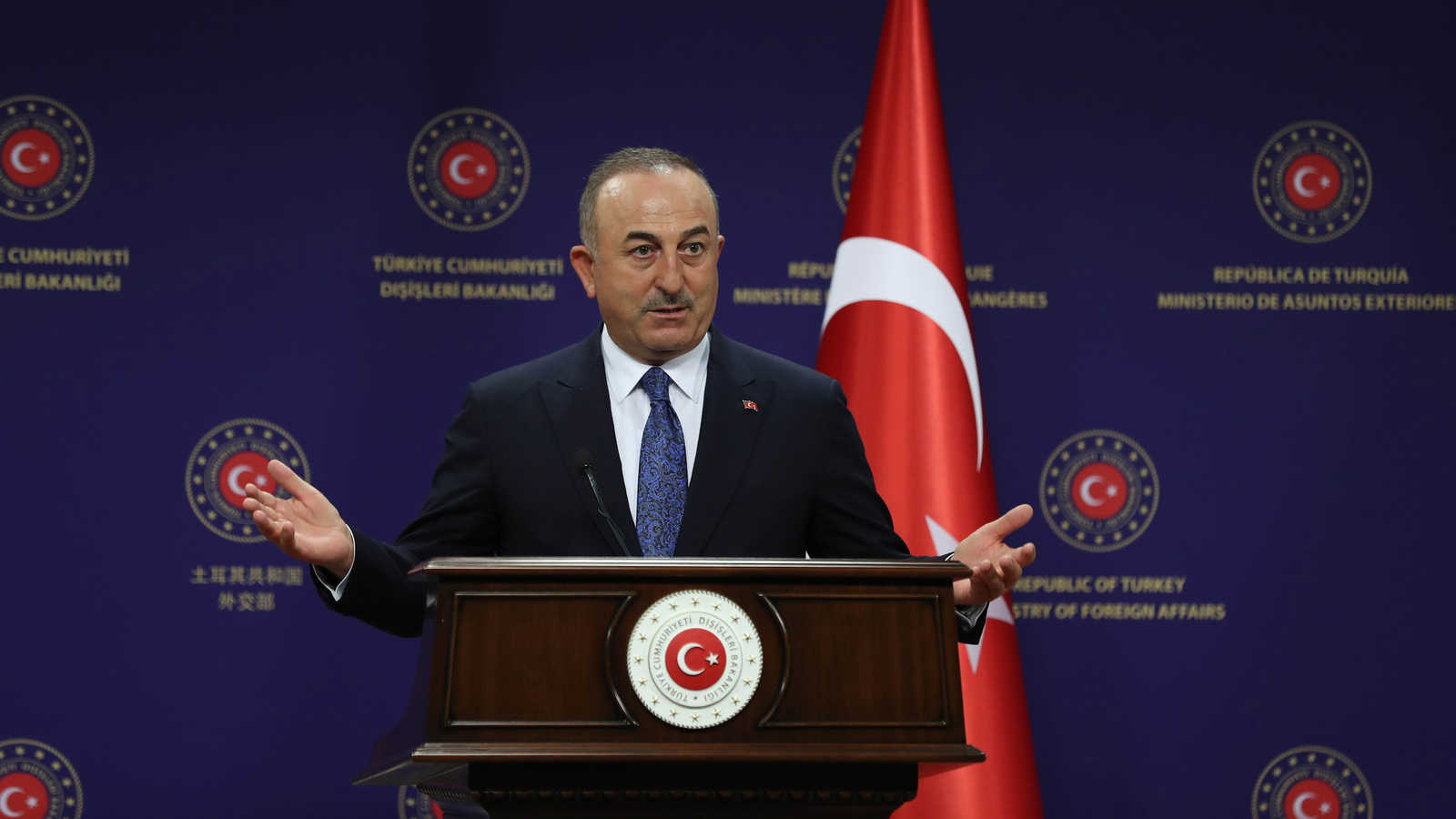
Turkish Foreign Minister Mevlut Cavusoglu said Ankara will “take steps” to respond to the US sanctions unveiled this week.
Turkey won’t back down from its purchase of Russian-made S-400 surface-to-air missile defense systems, Turkish Foreign Minister Mevlut Cavusoglu said on Thursday, adding that Ankara is weighing how to respond to recent US sanctions.
On Monday the Donald Trump administration slapped limited sanctions on Turkey over its multibillion-dollar purchase from Moscow. The long-awaited sanctions, issued under the Countering America’s Adversaries Through Sanctions Act (CAATSA), targeted the country’s defense procurement agency (SSB) and its senior officials.
Asked by broadcaster Kanal 24 whether Turkey would reverse its S-400 arrangement with Russia in light of the sanctions, Cavusoglu said, “If we were going to step back we would have done so before now.”
Washington says the systems, acquired from Russia in 2019, pose a threat to NATO’s air defense capabilities and may compromise the security of its own F-35 stealth fighter jets. The Trump administration kicked Turkey out of the joint strike fighter program last year and has repeatedly warned Ankara it risked congressionally mandated sanctions. Despite the threats, Turkey tested the S-400 systems in October.
“We will surely take our steps in line with these,” Cavusoglu said, according to Reuters. “It’s not important whether the sanctions are soft or harsh, sanctions in themselves are wrong.”
The sanctions, which mark the first time CAATSA has been used against a NATO ally, ban US export licenses for any goods and transfers to Turkey’s defense procurement agency. The penalties also freeze the US-held assets of the SSB’s senior officials and bar their entry to the United States.
Although the sanctions are limited in scope, a Turkish defense expert told Al-Monitor as much as 40% of Turkey’s defense imports from the United States could be impacted. Still, Cavusoglu downplayed the sanctions’ impact on the coronavirus-strained Turkish economy, which has seen the lira slip to record lows this year.
“Looking at the content of the sanctions, these are not measures that will shake us to the core or impact us very much,” Cavusoglu said.
The new sanctions add to President-elect Joe Biden’s list of foreign policy challenges when he takes office next month. Biden, who has previously described Turkish President Recep Tayyip Erdogan as an “autocrat,” will inherit a US-Turkey relationship already under strain over Ankara’s activities in the eastern Mediterreanan Sea, its military campaign against Syria’s US-backed Kurds and Turkey’s growing closeness with Russia.
“Imposing sanctions on a NATO ally is not something we take lightly,” Matthew Palmer, deputy assistant secretary in the Bureau of European and Eurasian Affairs, told reporters Monday.
 Eurasia Press & News
Eurasia Press & News



